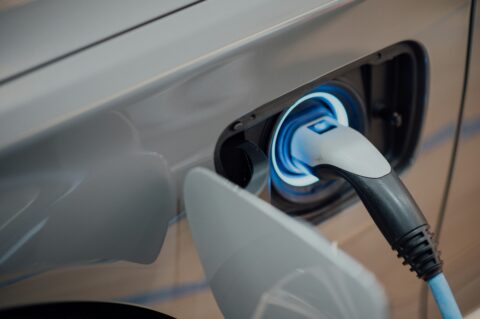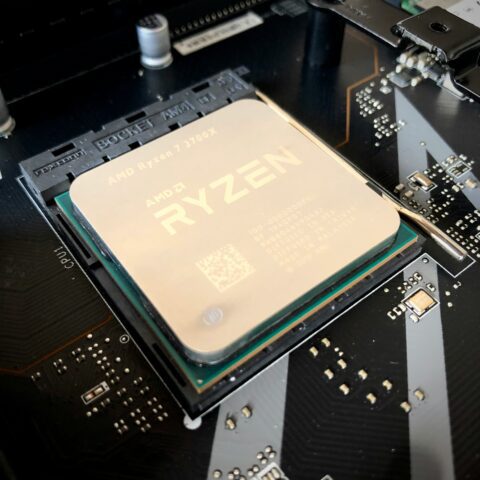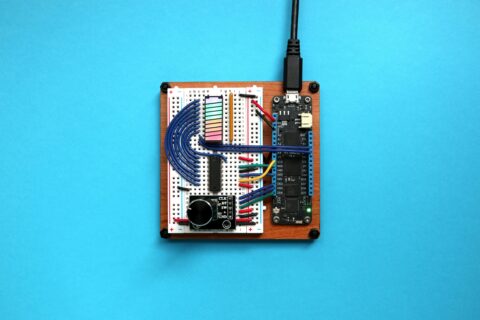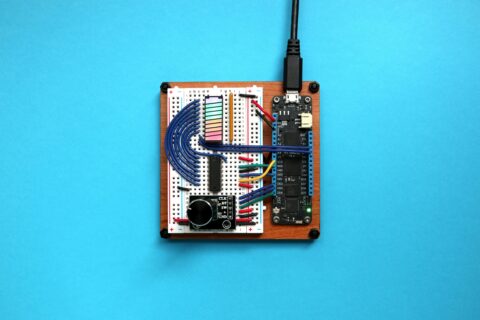Introduction to Electronic Appliances
Welcome to the electrifying world of electronic appliances! From our trusty smartphones that keep us connected, to the sleek laptops that help us conquer our workloads, and the high-definition TVs that transport us to other worlds – electronics have become an integral part of our lives. But just like any valuable investment, it’s important to take proper care of these devices to ensure they stay in top-notch condition and last for as long as possible.
In this blog post, we’ll dive into the importance of maintaining your electronics and share some handy tips on how you can extend their lifespan. We’ll also provide specific maintenance guidelines for different types of electronics so you can give each device the TLC it deserves. And don’t worry – we won’t leave you hanging when it’s time to bid farewell to your old or broken gadgets; we’ll guide you on how to dispose of them properly too.
So grab a cuppa, get comfy, and let’s delve into the world of electronic appliance maintenance together! Your devices will thank you later.
The Importance of Proper Maintenance for Electronics
Proper maintenance is essential for ensuring the longevity of your electronic appliances. Neglecting routine care can lead to a shortened lifespan and costly repairs or replacements. By taking the time to properly maintain your electronics, you can save yourself both time and money in the long run.
Regular cleaning is one aspect of proper maintenance that should not be overlooked. Dust, dirt, and grime can accumulate on electronic devices over time, leading to overheating or performance issues. Using a soft cloth and gentle cleaning solutions specifically designed for electronics can help remove these particles without causing damage.
Another important aspect of maintenance is ensuring that your electronics are stored in appropriate conditions. Extreme temperatures, high humidity levels, and exposure to direct sunlight can all have negative effects on electronic devices. It’s best to keep them in a cool, dry place away from direct sunlight whenever possible.
Additionally, it’s crucial to handle your electronics with care. Avoid dropping them or subjecting them to unnecessary physical stress as this can cause internal damage that may not be immediately visible. Always follow manufacturer guidelines when it comes to handling and transporting your devices.
Regular software updates are also key in maintaining optimal performance for many electronic appliances such as smartphones and laptops. These updates often include bug fixes and security patches that help protect against potential vulnerabilities.
Taking the time for proper maintenance not only extends the lifespan of your electronics but also ensures they continue performing at their best capabilities throughout their life cycle. So don’t overlook this important aspect of owning electronic appliances – give them the care they deserve!
Common Causes of Shortened Lifespan for Electronics
Common Causes of Shortened Lifespan for Electronics
Electronics have become an integral part of our daily lives, making it crucial to understand the common causes that can lead to a shortened lifespan for these devices. By identifying and addressing these issues, you can ensure that your electronics last longer and perform better.
One of the major culprits behind shortened lifespans is improper handling. Dropping or mishandling electronic devices can result in internal damage, leading to malfunctions or even complete failure. It’s important to handle your electronics with care, using protective cases or covers when necessary.
Another common cause is exposure to moisture or liquids. Electronics are highly sensitive to water damage, which can corrode internal components and render them useless. Avoid using electronic devices near bodies of water or in humid environments without proper protection.
Heat is also a significant factor in reducing the lifespan of electronics. Overheating can cause internal components to degrade quickly and affect performance. Ensure proper ventilation by keeping vents clear and avoiding placing electronic devices on soft surfaces like beds or couches that restrict airflow.
Regular software updates should not be neglected as they often contain bug fixes and security patches that help maintain optimal performance while extending the lifespan of your device.
Neglecting routine cleaning and maintenance can significantly impact an electronic device’s longevity. Dust accumulation inside gadgets over time obstructs ventilation pathways causing overheating problems while also increasing wear on moving parts such as fans.
By being aware of these common causes for shortened lifespans in electronics appliances we use every day; we can take proactive steps toward their prevention! So let’s make sure we treat our beloved gadgets carefully, keep them away from moisture sources, avoid excessive heat exposure, regularly update software systems!, clean them regularly – ultimately maximizing their potential years serving us efficiently!
Tips for Extending the Lifespan of Your Electronics
Tips for Extending the Lifespan of Your Electronics
1. Keep them clean: Dust and dirt can accumulate on your electronics, causing them to overheat and malfunction. Regularly wipe down your devices with a soft cloth to keep them clean.
2. Use surge protectors: Power surges can damage your electronics, so it’s important to use surge protectors to safeguard against voltage spikes. This will help prevent costly repairs or replacements.
3. Avoid extreme temperatures: Electronics are sensitive to temperature fluctuations, so try not to expose them to extreme heat or cold. Keep them in well-ventilated areas and avoid placing them near heating sources.
4. Update software regularly: Software updates often include bug fixes and security patches that can improve the performance and stability of your devices. Make sure you install these updates as they become available.
5. Don’t overload power outlets: Overloading power outlets with too many devices can strain the electrical system and potentially lead to damage or fires. Spread out your electronics across different outlets or use extension cords if needed.
6.
Use proper storage when not in use : When you’re not using your electronics for an extended period of time, store them properly by keeping them in protective cases or covers where applicable, this helps shield from dust accumulation,damage from accidental falls etc
7.
Handle with care: Treat your electronics gently and avoid subjecting them to unnecessary shocks or impacts. Be mindful when handling cables, plugs, and connectors as rough handling can cause internal damage.
Remember that taking proactive steps towards maintaining the lifespan of your electronic appliances is essential for their longevity! By following these tips, you’ll be able to enjoy reliable performance from your gadgets for years to come
Specific Maintenance Guidelines for Different Types of Electronics (e.g. phones, laptops, TVs)
Specific Maintenance Guidelines for Different Types of Electronics
Phones: To keep your phone running smoothly, it’s important to regularly update the software and apps. Clean the screen with a microfiber cloth to remove fingerprints and dirt. Avoid exposing your phone to extreme temperatures or moisture, as this can damage internal components.
Laptops: Keep your laptop clean by wiping the keyboard and screen with a soft cloth. Use compressed air to remove dust from the vents and fan. Be mindful of where you place your laptop, avoiding uneven surfaces that may block ventilation. Regularly backup important files and consider using a cooling pad if you use your laptop for extended periods.
TVs: Dust can accumulate on TV screens, so gently wipe them with a soft cloth periodically. Avoid spraying cleaning solutions directly onto the screen; instead, dampen the cloth with water or specialized cleaner if necessary. Unplug your TV during thunderstorms or when not in use for long periods to prevent power surges.
By following these maintenance guidelines specific to each type of electronic device, you can significantly extend their lifespan and ensure optimal performance!
How to Dispose of Old or Broken Electronics Properly
Proper disposal of old or broken electronics is essential to protect the environment and prevent harmful substances from contaminating landfills. Here are some guidelines on how to dispose of your electronic devices responsibly:
1. Research Local Regulations: Before disposing of your electronics, familiarize yourself with local regulations regarding e-waste recycling. Many cities have specific programs in place for proper disposal.
2. Donate or Sell Working Electronics: If your device is still functional but no longer needed, consider donating it to a charitable organization or selling it online. This way, someone else can benefit from its use.
3. Recycle Non-Functional Electronics: For broken or obsolete devices, recycling is the best option. Many retailers and manufacturers offer e-waste recycling programs where you can drop off your old electronics for proper handling.
4. Look for Certified E-Waste Recyclers: When choosing a recycling facility, ensure that they are certified and follow environmentally responsible practices in dismantling and disposing of electronic components.
5. Protect Your Data: Before disposing of any device, make sure to remove all personal data by performing a factory reset or using specialized software designed for data destruction.
Remember, simply throwing away electronic devices in regular trash bins poses risks not only to the environment but also to human health due to hazardous materials like lead and mercury present in many electronics components. By taking the time to properly dispose of your old or broken electronics, you can contribute towards creating a cleaner and safer world for future generations.
Conclusion: Why Taking Care of Your Electronics Matters in the Long Run
Conclusion: Why Taking Care of Your Electronics Matters in the Long Run
Proper maintenance and care for your electronic appliances are essential if you want to maximize their lifespan. By following simple guidelines and adopting good habits, you can significantly extend the life of your devices, saving both money and the environment.
Electronic appliances play a significant role in our daily lives, from smartphones that keep us connected to laptops that help us work efficiently. These devices have become an integral part of our routines, making it crucial to ensure they remain in good condition.
Unfortunately, many people neglect proper maintenance for their electronics, leading to premature breakdowns and costly repairs. The truth is that with a little effort and attention, you can avoid these issues altogether.
Common culprits behind shortened lifespans include dust accumulation within devices, overheating due to poor ventilation or excessive usage, improper charging practices leading to battery degradation, and neglecting software updates or system cleanups.
To extend the lifespan of your electronics:
1. Keep them clean: Regularly wipe down screens with microfiber cloths and use compressed air or soft brushes to remove dust from keyboards or ports.
2. Avoid extreme temperatures: Excessive heat or cold can harm sensitive components; store devices in moderate environments.
3. Use surge protectors: Protect your electronics from power surges by using surge protectors or Uninterruptible Power Supplies (UPS).
4. Practice safe charging habits: Use original chargers whenever possible; avoid overcharging by unplugging when batteries reach full capacity.
5. Update software regularly: Manufacturers often release updates that address bugs or improve performance – keeping up-to-date helps maintain device functionality.
6. Give them breaks: Continuous usage without breaks can cause overheating; give your electronics some downtime periodically.
7. Handle with care during transportation: Use protective cases when carrying laptops or tablets on-the-go; secure cables properly before moving desktop computers.
8.
Take precautions against liquid damage: Keep beverages away from electronics and consider using protective covers or cases in water-pr







